The Beautiful Carolina Otero: How a Former Prostitute Drove Europe Crazy
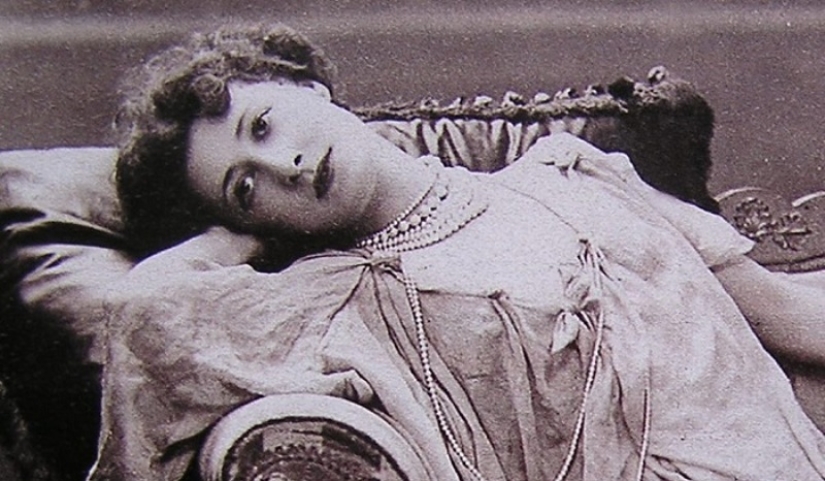
The French courtesan Caroline Otero was called the "Queen of Paris". She was admired not only in France, but also in Britain, Germany, Spain, Russia and Austria. She went through a difficult path from a woman selling her body on the streets to a socialite admired by aristocrats and even monarchs.
The real name of the legendary Parisian courtesan Carolina Otero is Augustina de Carmen Otero Iglesias. She was born on November 4, 1868 in the Spanish province of Pontevedra. The mother of the family, Carmen Otero Iglesias, in addition to little Augustina, raised four more children born to different fathers. Carmen did not have a husband and the woman sold her body to feed her large family.
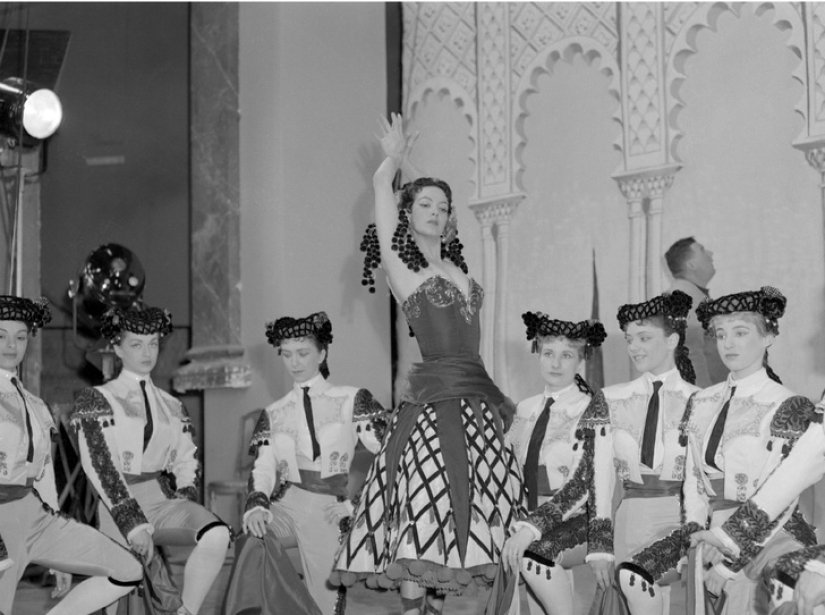
The mother was rarely at home, and the children were left to their own devices. Augustina spent almost all her time on the street in the company of local hooligans. She looked for food and clothes in garbage heaps and did not disdain petty theft. When the girl was only ten years old, she was raped and almost killed. The child was saved from death by passers-by who scared off the rapist. The police tried to find the criminal, but were unsuccessful in this matter. Augustina received serious injuries, both physical and mental.
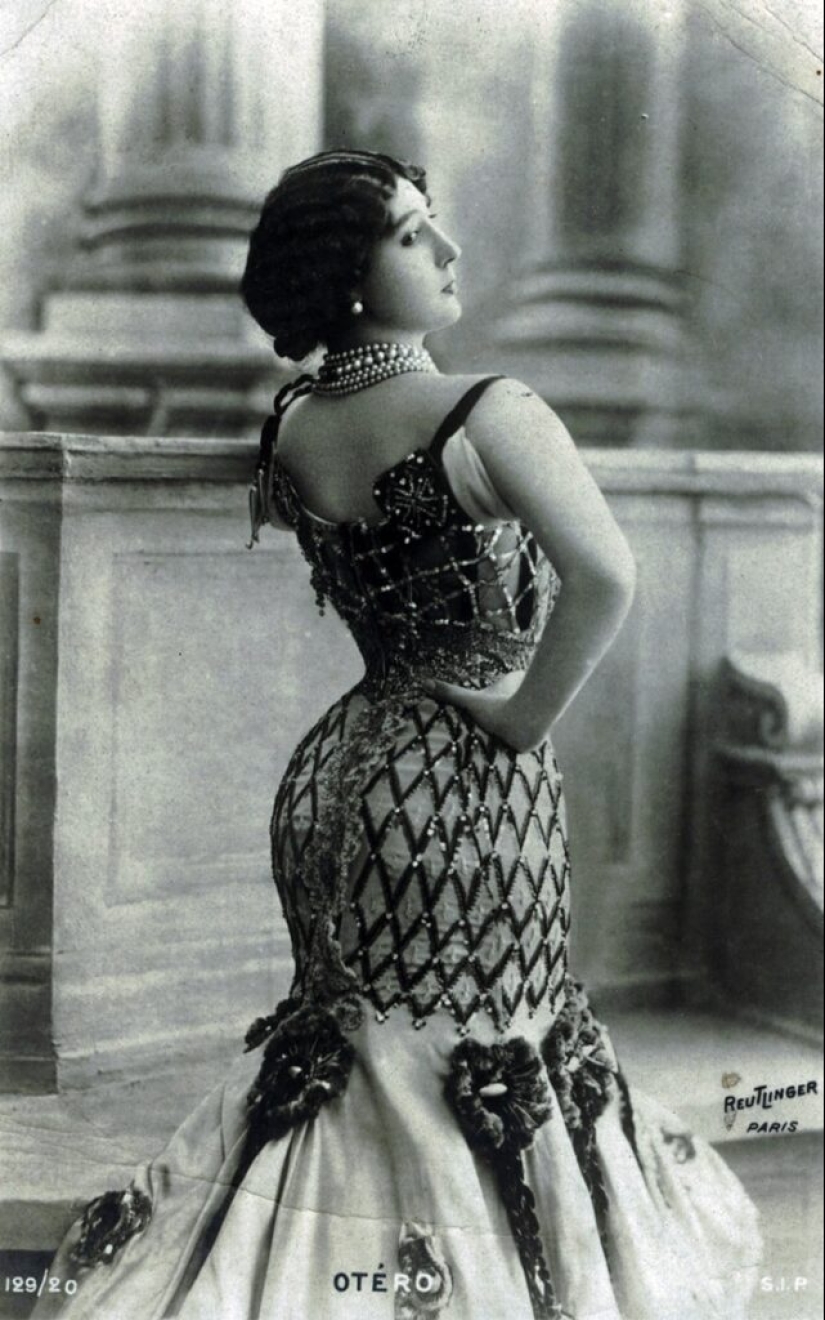
The tragedy changed the girl's attitude to life. Augustina seemed to come to her senses and decided that she would make every effort to escape poverty. At the age of 14, Carolina, as she decided to call herself, ran away from home with a group of friends. They headed to Lisbon. There, the young Spanish woman was engaged in prostitution and sometimes performed dances on the stages of local bars.
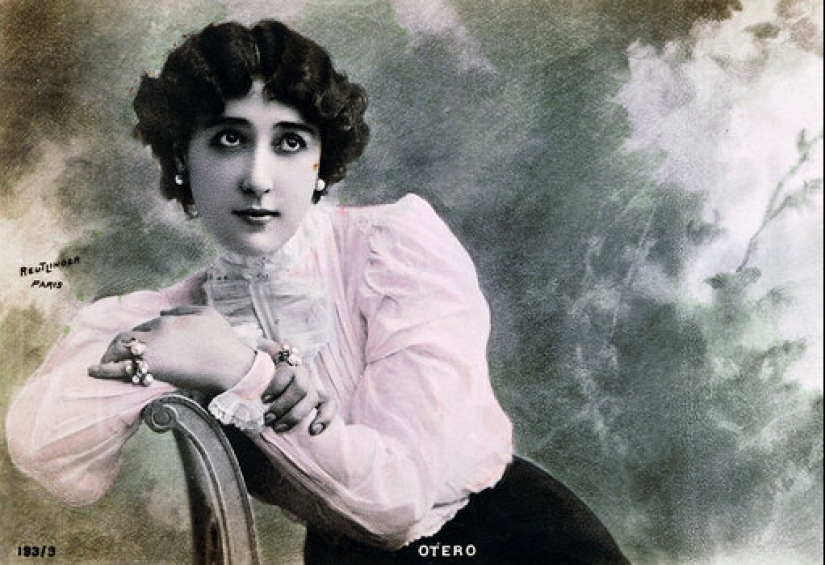
Carolina had an undeniable talent - soon she became famous and was invited to various establishments. The girl could have made a career as a dancer in Lisbon, but she had completely different plans. Otero went to Barcelona, where there were more opportunities for earning money. Very soon Carolina became a star there too. Men with money circled around her, captivated by the beauty and grace of the young artist.
The year 1888 became a turning point for 20-year-old Carolina. She met a rich man who became not only her lover but also her sponsor. He invested in Otero's talent and paid for her spectacular dance shows. The couple often appeared in places where bohemians gathered, and Carolina made useful contacts. She communicated with celebrities, artists, musicians, politicians.
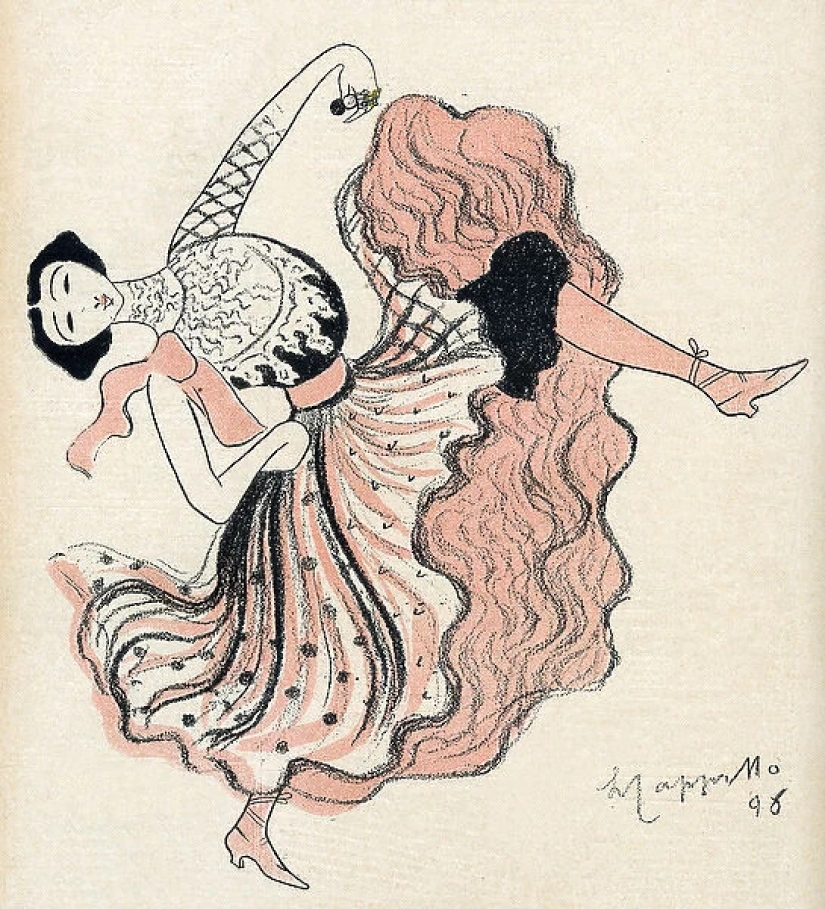
At the same time, a new stage image was born. Carolina began performing as an Andalusian gypsy with the pseudonym of the Beautiful Otero. The natural talent and beauty of the dancer made the audience fall in love with her. After the performances, the girl was drowning in flowers and expensive gifts, and hundreds of fans were eager to spend at least a few moments next to her.
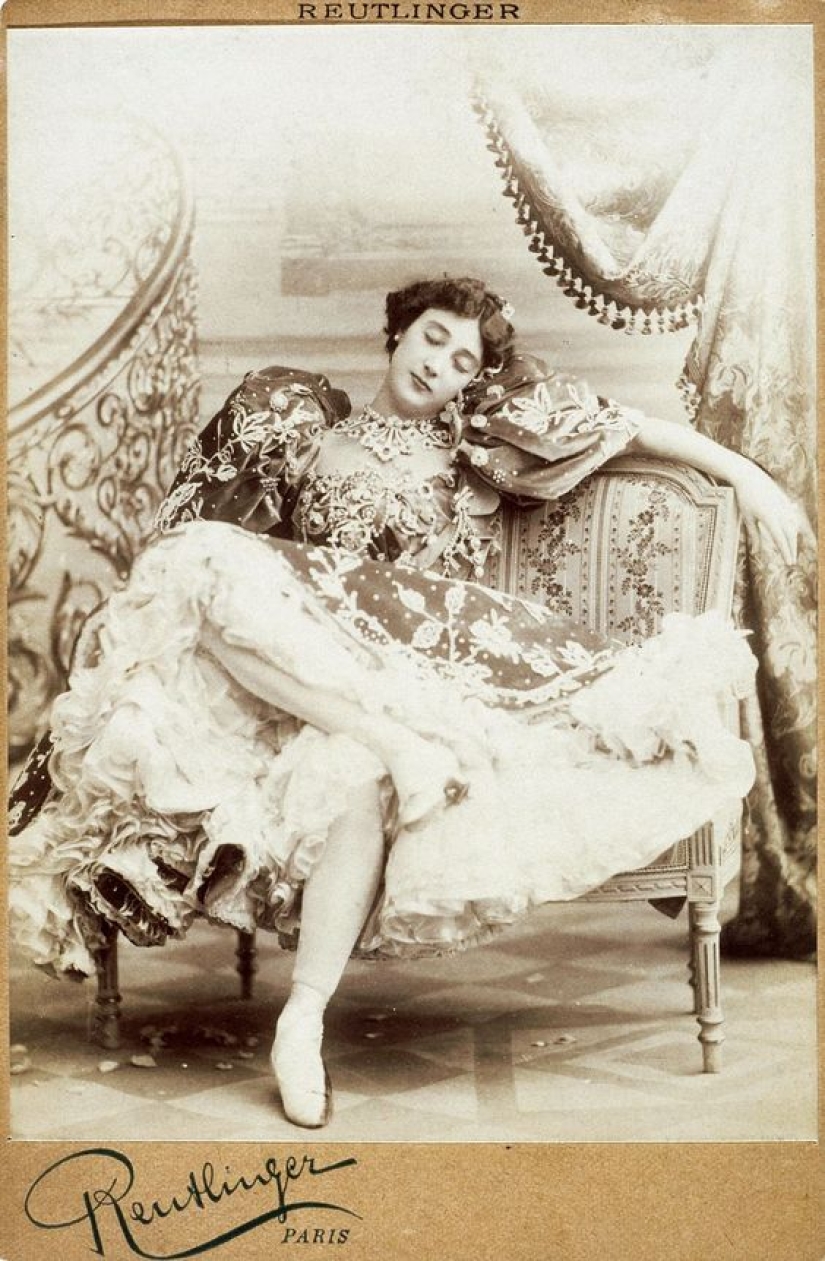
Carolina Otero became a muse for poets, writers, artists and architects. When the Inter Continental Cannes Hotel was completed in 1913, rumors began to circulate that its two domes repeated the contours of the beautiful courtesan’s breasts. Very soon, Barcelona became too small for Carolina and she moved to Paris. There, she began performing at the Folies Bergère variety show, dancing in luxurious costumes embroidered with crystals.

Everything the hungry Spanish girl dreamed of came true. She became rich and famous. Millionaires and aristocrats sought her favor. Among Otero's lovers were Emperor Wilhelm II of Germany, Prince Albert I of Monaco, Grand Dukes Peter Nikolaevich and Nikolai Nikolaevich Romanov, Duke of Westminster Hugh Grosvenor, and King Edward VII of Great Britain.
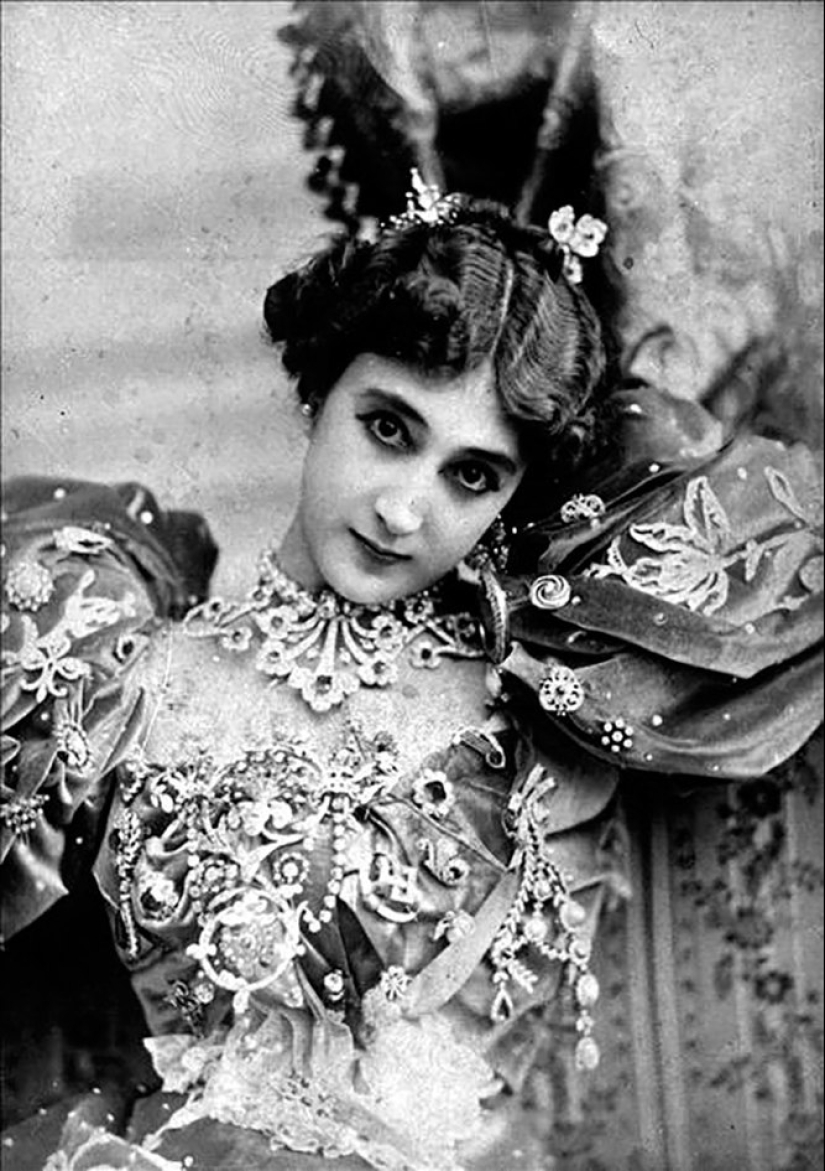
Duels broke out over Caroline, and six of her rejected admirers committed suicide. Women hated the beauty. Her success was the subject of black envy. Therefore, Paris was filled with rumors and disgusting gossip about the debauchery and unworthy behavior of the star. However, Otero herself was little bothered by these intrigues of envious women. She was focused on her fame and wealth.
By 1918, Caroline Otero could afford whatever she wanted even without rich admirers. She bought a huge mansion in Nice and furnished it with royal luxury. Everything would have been wonderful if not for one vice that spoiled everything. The woman suffered from a passion for gambling. Over the years, Otero became a regular at the casino in Monte Carlo, where she could lose a fortune in an evening.
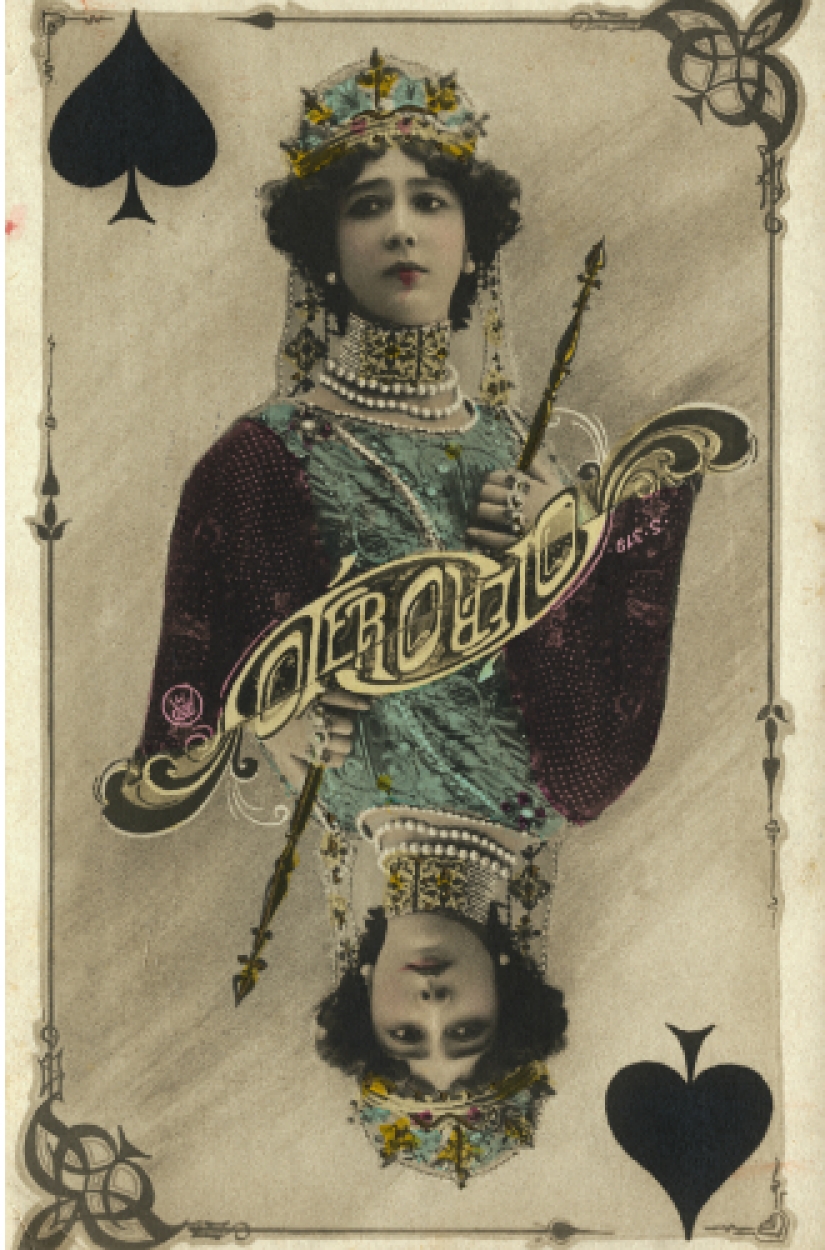
When her money ran out, Caroline pawned her jewelry without a second thought. The courtesan had a fantastic collection of jewelry that was given to her by her admirers who had lost their heads. Among them were Queen Marie Antoinette's necklace, black pearl beads of Empress Eugenie, the wife of Napoleon III, and a unique masterpiece from the jewelers of the House of Cartier - a bolero necklace made of diamonds and white gold.
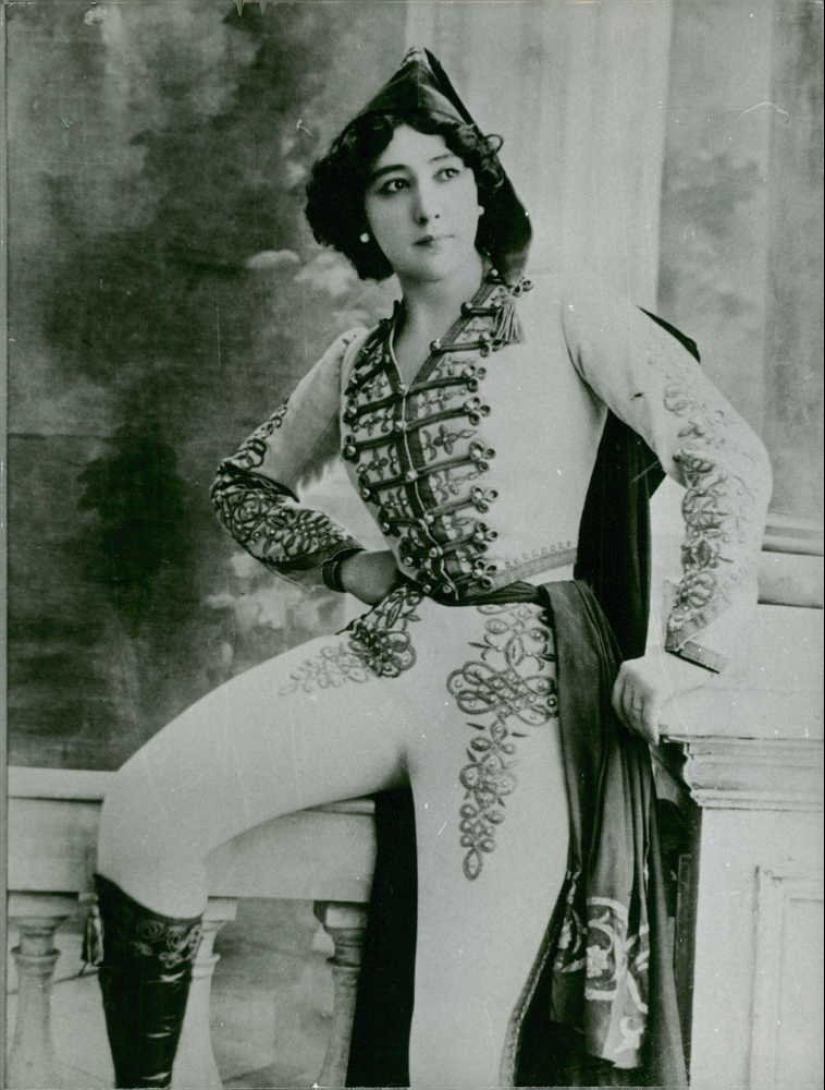
Caroline gambled away all these priceless treasures. In 1948, the money and jewelry ran out. The elderly, sick woman could not stop and sold off her real estate. She ended up in a standard one-room suite at the Novelty Hotel in Nice. They say that several Monte Carlo casinos assigned her an allowance, as a sign of respect for one of the oldest visitors. According to another version, Otero was supported until his death by a rich admirer who kept his name a secret.
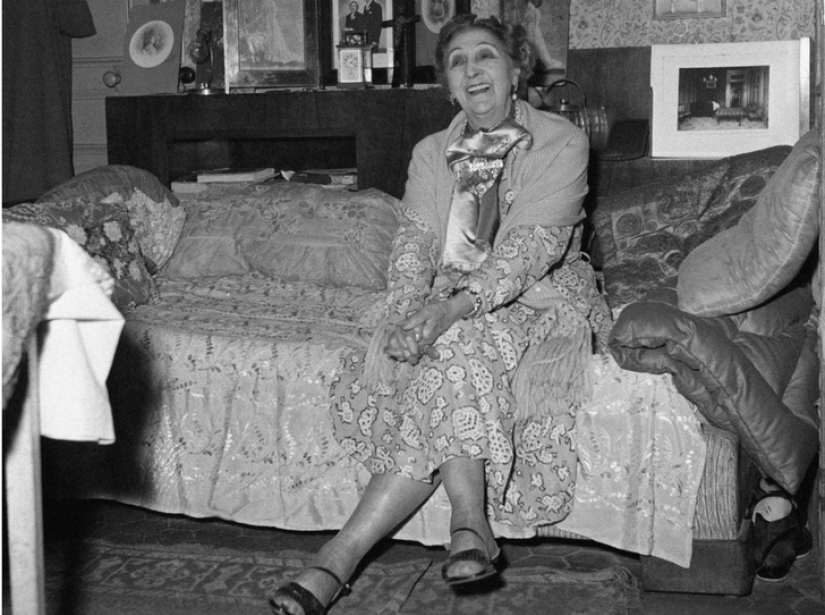
Shortly before her death, Carolina Otero wrote a book of memoirs, “Memories and Intimate Life of the Beautiful Otero.” The most famous courtesan in Europe died in 1965 in her modest hotel room. The “Queen of Paris” was gone, but her life continued to inspire creative people.
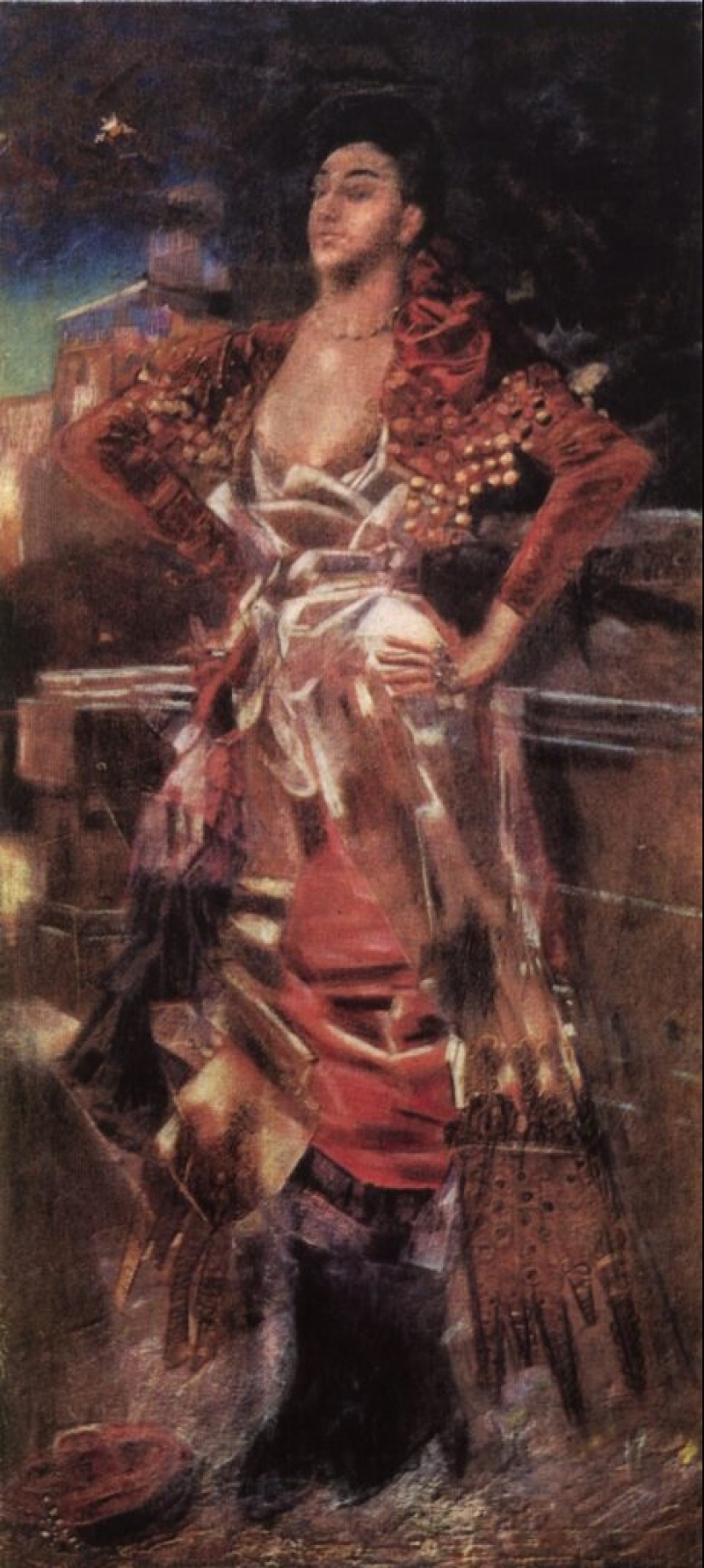
The Uruguayan writer Carmen Posadas wrote a book about the courtesan, "La Belle Otero." French director Richard Pottier made a feature film of the same name. The image of the beautiful dancer was immortalized in one of his paintings by the great Russian artist Mikhail Vrubel.
Recent articles

It's high time to admit that this whole hipster idea has gone too far. The concept has become so popular that even restaurants have ...

There is a perception that people only use 10% of their brain potential. But the heroes of our review, apparently, found a way to ...

New Year's is a time to surprise and delight loved ones not only with gifts but also with a unique presentation of the holiday ...